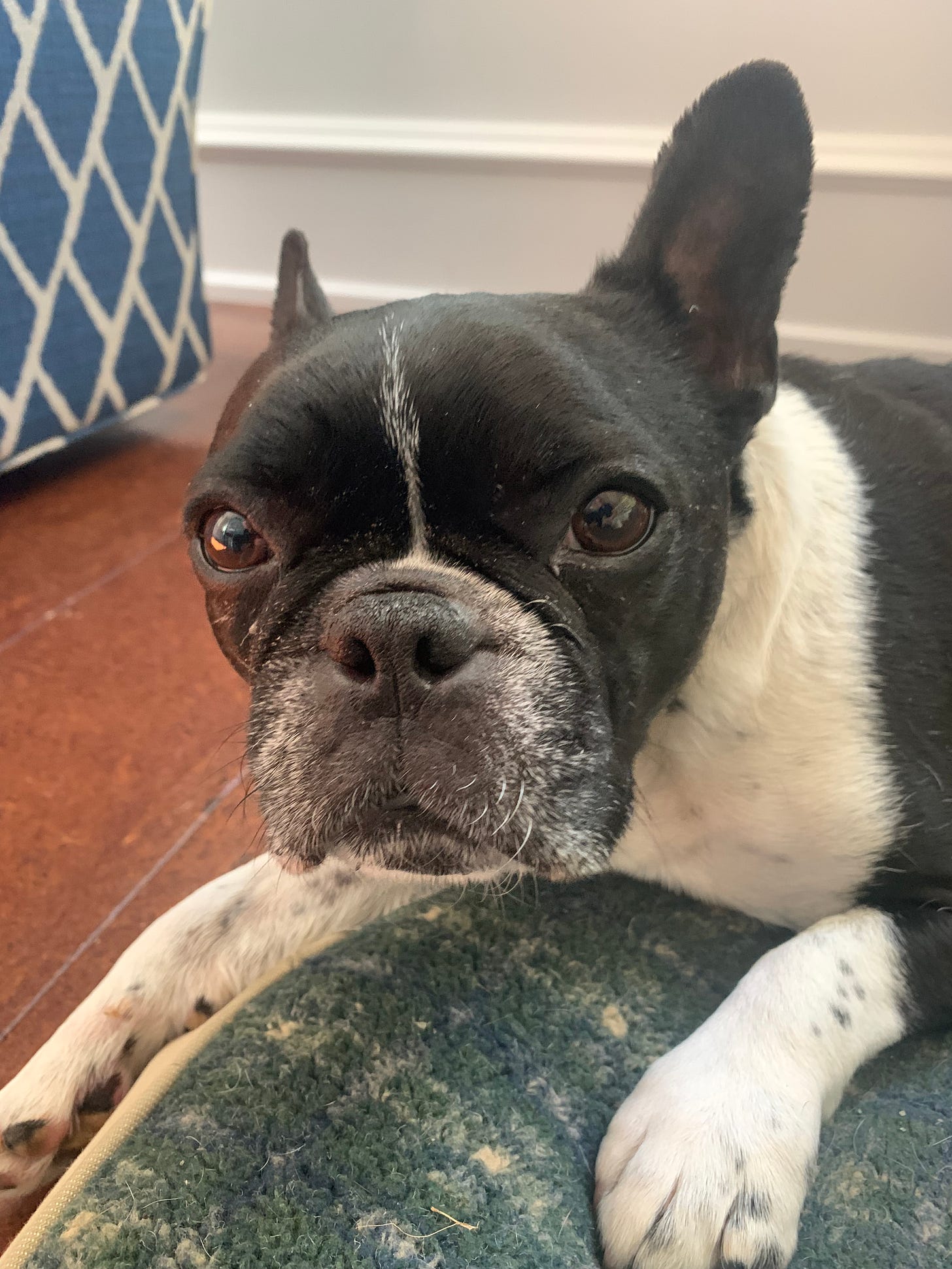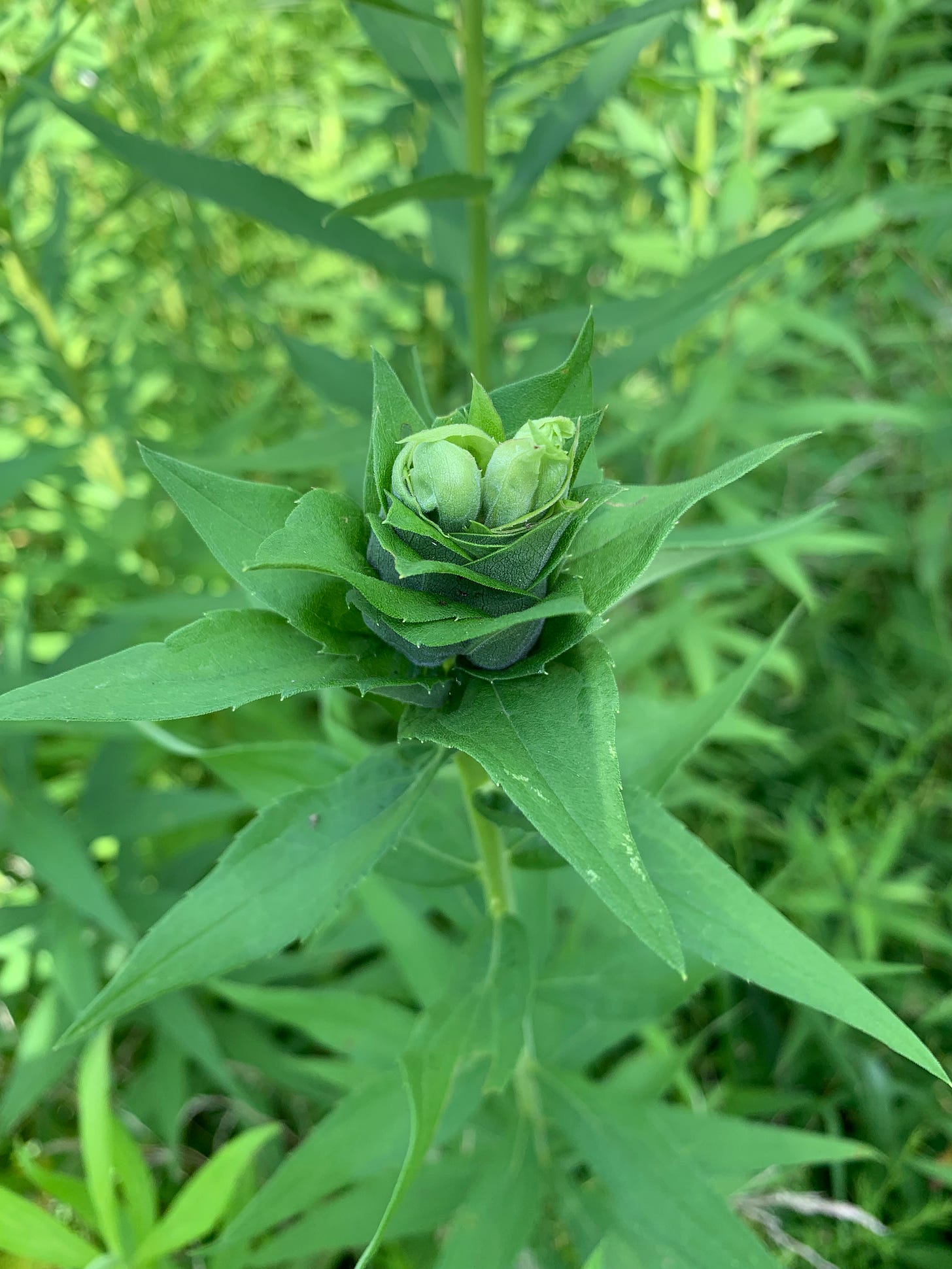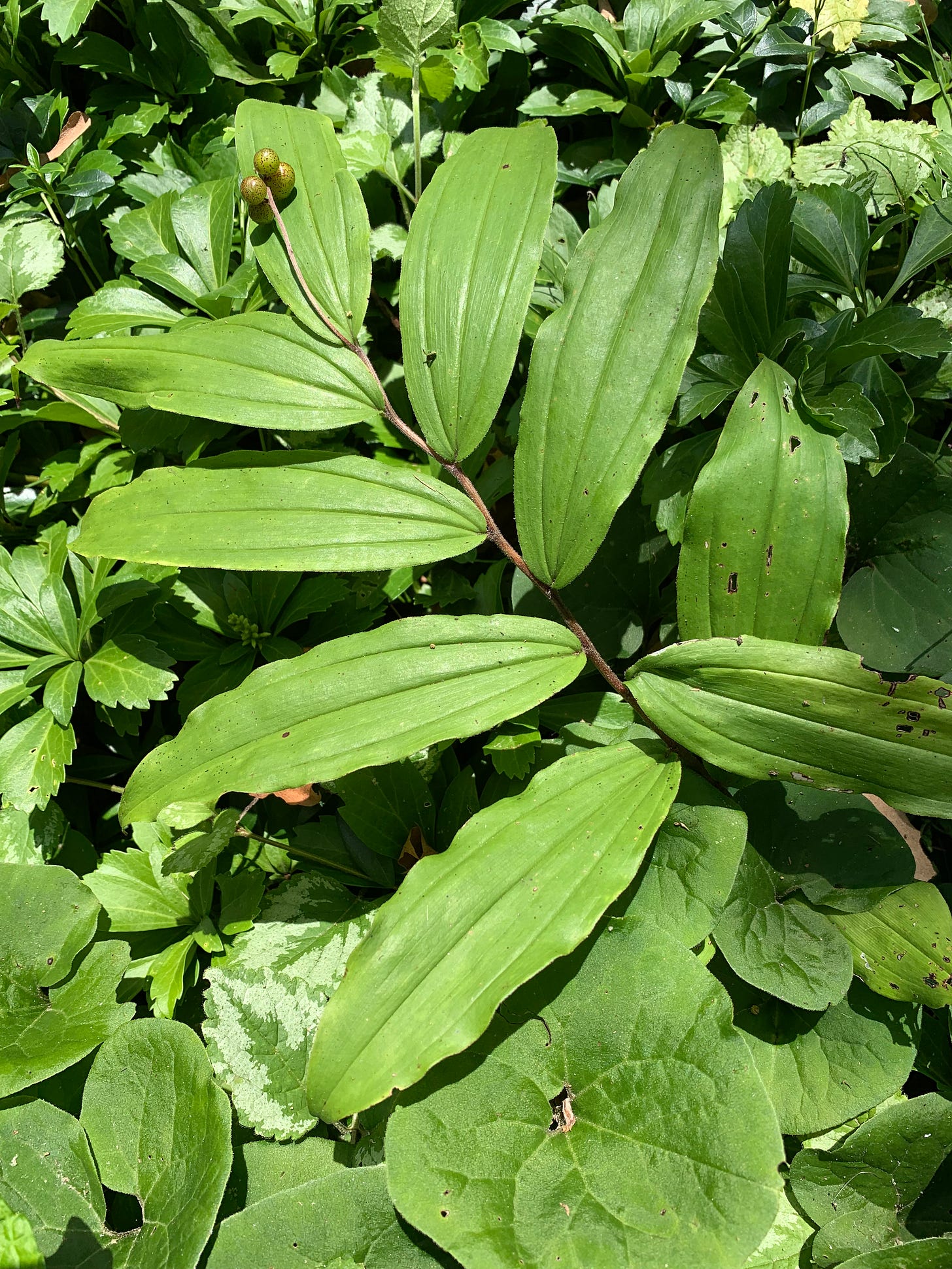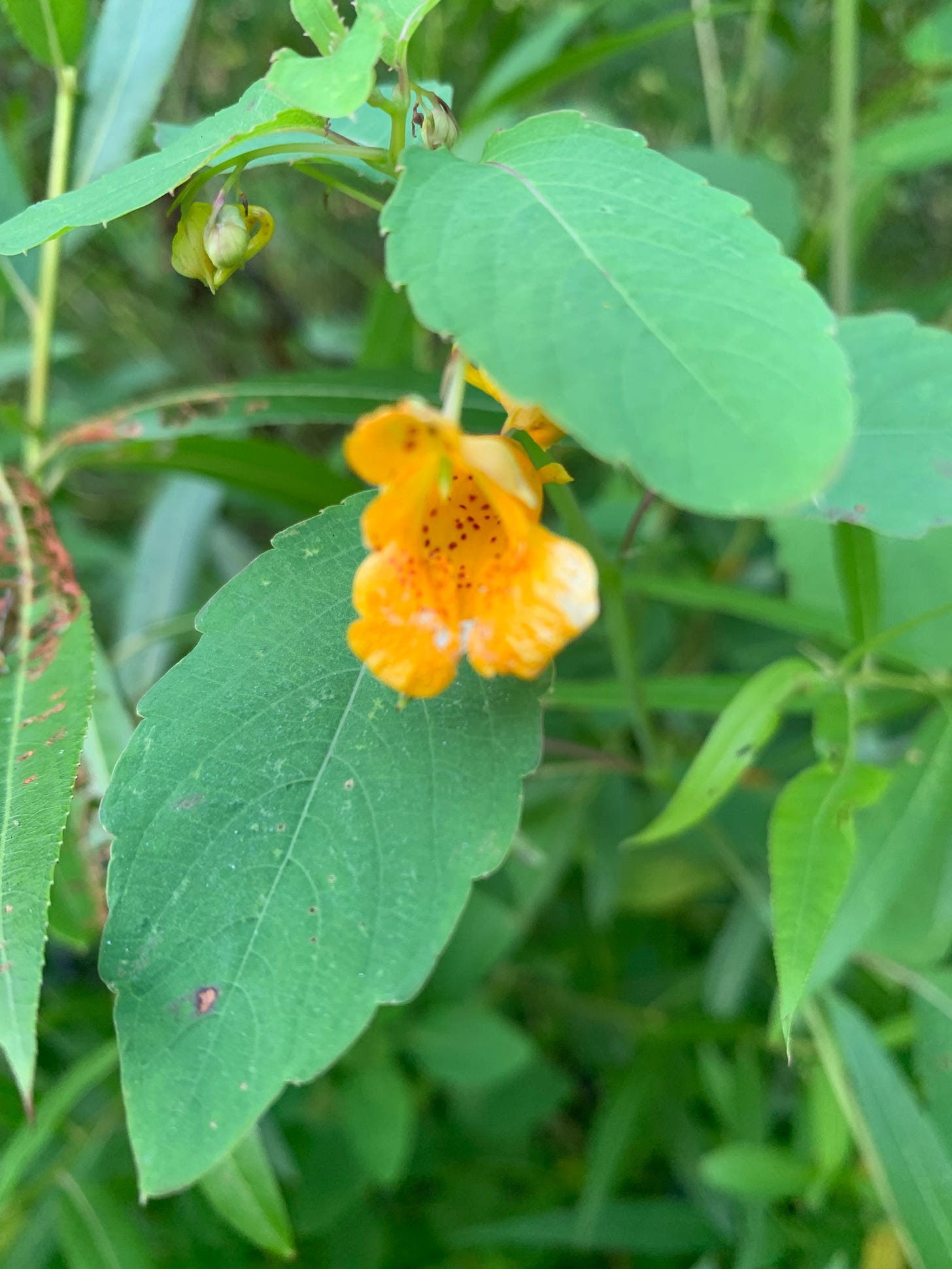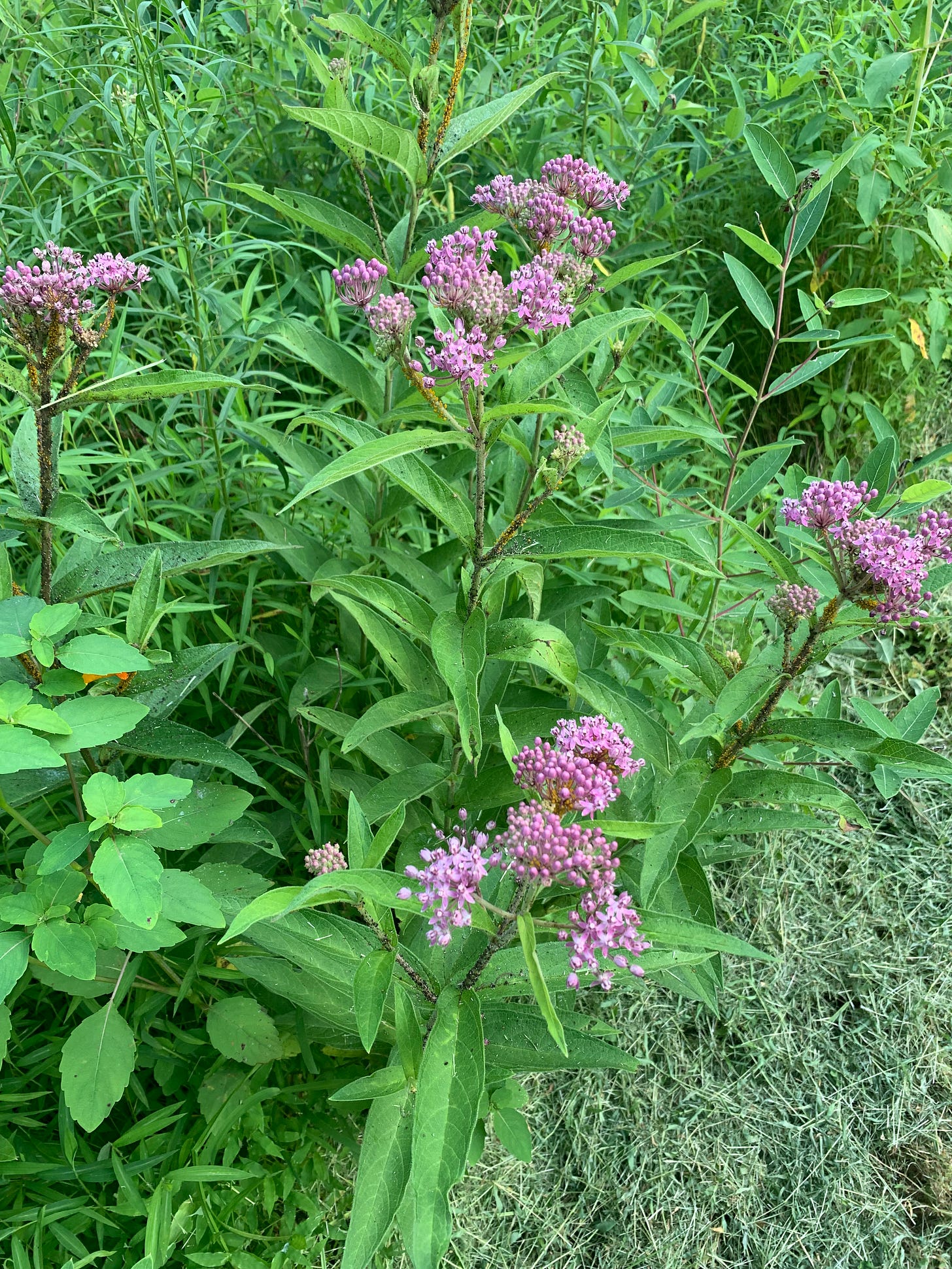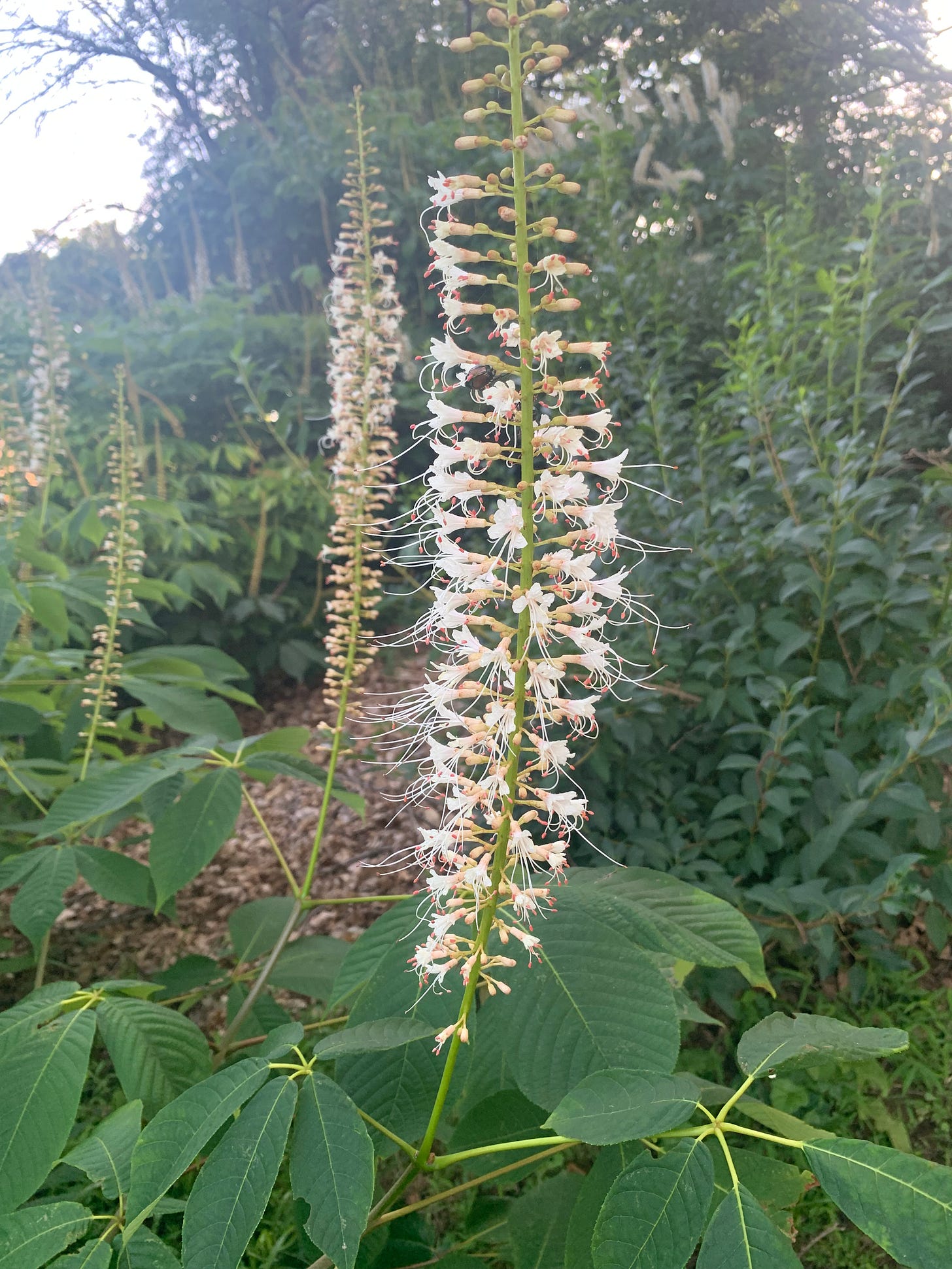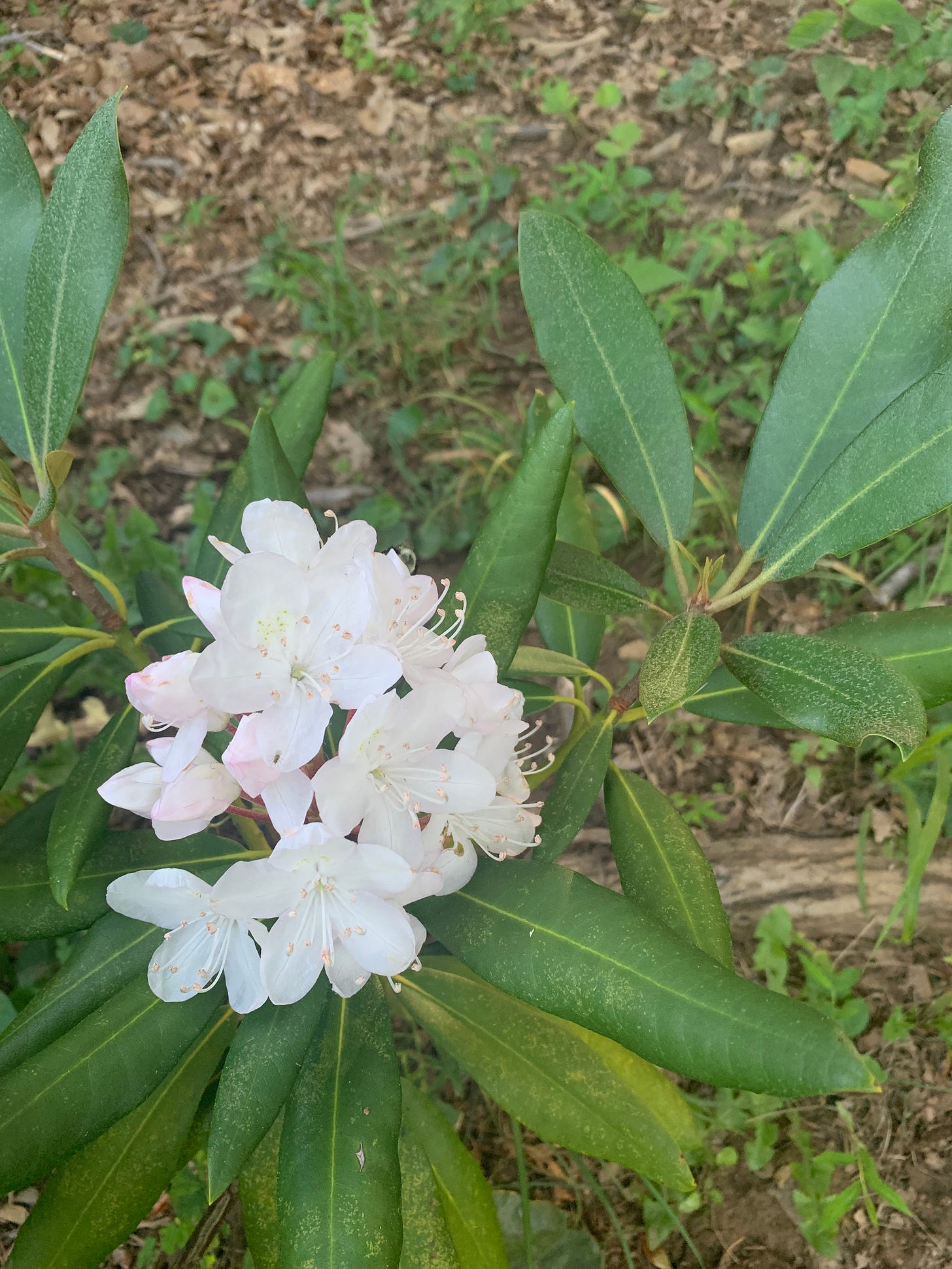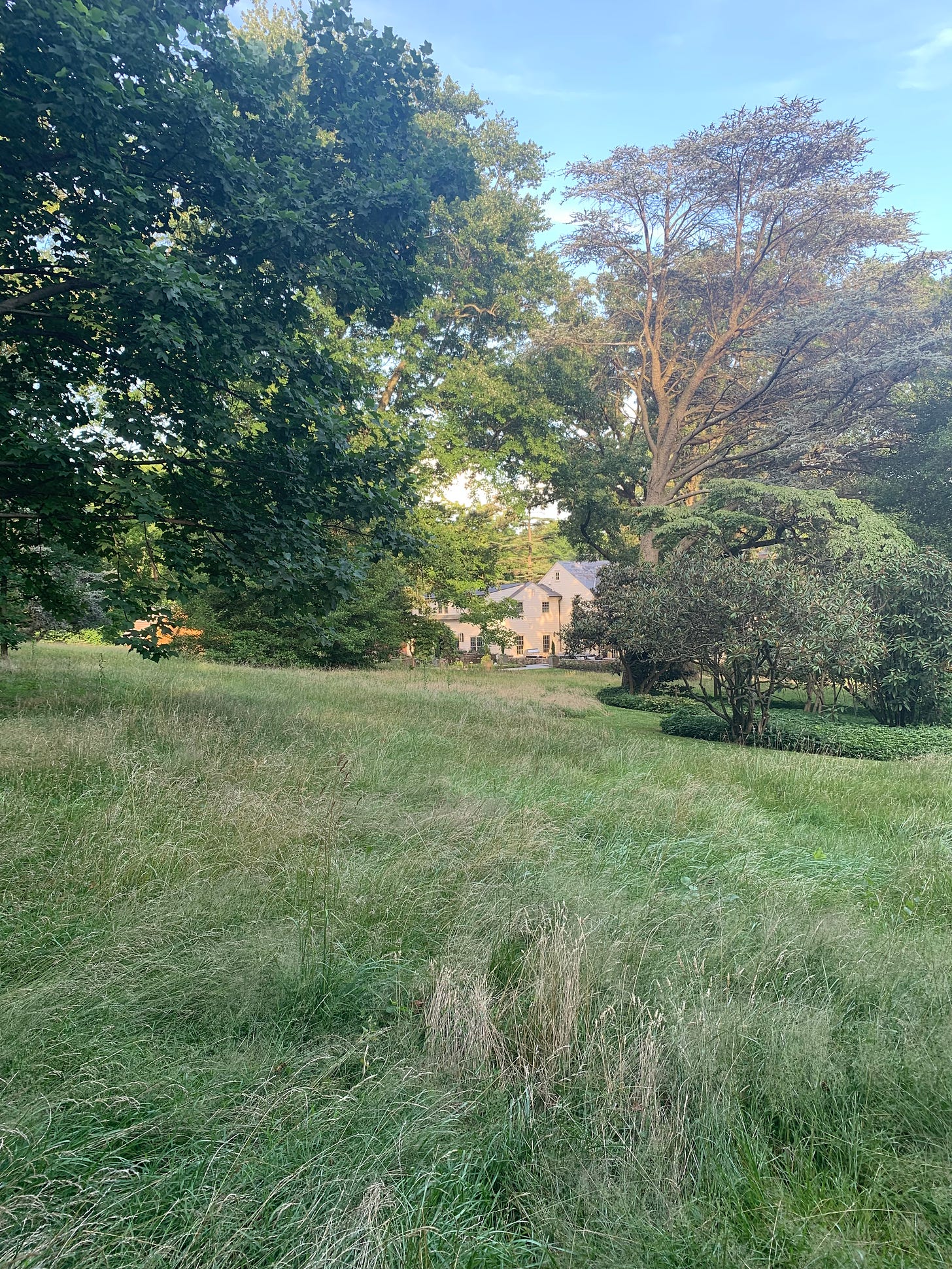Life, Death, and Gardening
Puddock Hill Journal #15: Reflections on Nature After the Passing of a Dog
Yesterday, we put down our beloved French bulldog, Piebald, who loved life more than life loved him. Minutes earlier, he sat for his last portrait:
Frenchies, as some may know, were originally bred to lie in the laps of lacemakers and draw the fleas away from the linen thread. While he loved jumping up on the couch and cuddling, Pie refused to confine himself to lapdog pleasures.
All of 22 pounds in a compact frame, he would chase squirrels and fetch tennis balls. He would run down to the pond at the slightest temptation, sometimes during his pre-bedtime walk, and lumber up the hill twenty minutes later, panting and mud-covered and looking quite satisfied with himself.
Sometimes he’d crash into the pond—fortunately, never in water over his head—and take the opportunity to hunt bullfrogs in a manner that gave the frogs 100 percent chance of successful escape.
Pie wasn’t built for hunting, but he had a heart for it. He didn’t pause to consider how bad a hunter he was. He just went.
One day, while visiting my mother-in-law’s place at Andelot Farm, he charged into the chicken enclosure before we could get the gate closed. As we all screamed and ran to catch up with him, he sprinted into the flock and cornered one poor hen. When we pulled him off, he had a mouthful of feathers but no flesh. The hen survived.
That was the closest Pie ever came to killing anything, and I’m not sure he ever would have prevailed, regardless of our intervention.
Not that it mattered. The effort was the point.
In the end, after several back injuries, he could no longer make the effort to do most of the things he loved. Not to chase anything. Not to jump onto the couch, which became impossible for him two years ago. Not to run down the hill, let alone drag himself back up. He lost interest in chewing bones.
There is a part of me that thinks the bullfrogs and squirrels began to miss him. To give chase is an affirmation of life, after all, but so is the joy of successful flight.
The garden and property where Pie frolicked—and especially a garden bathed in the spirit of backyard stewardship—is not a static picture or a sterile landscape. It is a place where everything gets to live into its own nature. To chase, to be chased. To feed and to provide sustenance to others, eventually even through our own demise.
I think of Dylan Thomas’s famous poem “A Refusal to Mourn the Death, by Fire, of a Child in London,” which concludes:
Deep with the first dead lies London's daughter, Robed in the long friends, The grains beyond age, the dark veins of her mother, Secret by the unmourning water Of the riding Thames. After the first death, there is no other.
The “long friends” that form the robe are the worms of decomposition, in my reading. “The grains beyond age” are the grains of sand that surround her body. The “dark veins of her mother” are the strata of Mother Earth. These things are also the basis of life, the earth providing our sustenance.
The dead girl is “secret,” which is to say, anonymous, as we all become anonymous with death, our molecules blending back into nature. The waters of the Thames are “unmourning” because this is the necessary cycle of life, a “grave truth,” to quote the third stanza not quoted above, that Thomas refuses to speak.
Nature has no feelings for us. Why should it? “After the first death, there is no other” because the first death began the immutable cycle that also grants us life.
Sometimes—too rarely—we get a glimpse in our own backyards of the drama that unfolds within this cycle.
At Puddock Hill, we regularly see Great blue herons hunting and swallowing the fish that live in our pond.
Last summer, a Red tail hawk swooped down into the meadow not ten feet from me and emerged, after the briefest struggle, with a rodent in its talons.
Sometimes, with merciful infrequency, we watch the vultures circle, eyes on some unfortunate dying animal hidden from us in high grass or shadowy woods.
These are mere glimpses of the unending cycle of life that carries on with or without our observation.
Before we constructed our fence, we would occasionally find a dead deer down by the pond, mortally wounded by a car, I suspected, and having sought out water to quench the unquenchable thirst of her last moments on Earth.
Out in the garden, out in the patch of nature we call Puddock Hill, untold other mortal dramas unfold, often secret from us. Common flickers pull burrowing beetles from the soil. Red foxes carry their prey back to the den. Toads snap up insects. Rabbits eat clover down to the ground, hoping not to catch the fox’s attention. Plants elbow one another aside.
Here is the result when a Giant goldenrod bunch gall midge (Rhopalomyia capitata) bends the host plant’s growth pattern to its own will:
We have a responsibility to keep the cycle going. If you don’t believe that, you’re not my reader.
As stewards, it behooves us to give every living thing within our purview the opportunity to live its best life. Invasive species are the exception exactly because they stifle that opportunity—and it was our collective carelessness that gave them the opening to muscle in on this cycle in the first place.
I mourn the native plant unable to reach fulfillment of its nature, but I don’t mourn the fish that the heron caught or the groundhog in the fox’s mouth or the rodent in the clutches of the hawk.
After the first death, there is no other.
Now, looking back, I wish we had let Pie catch that chicken.
At Puddock Hill this week, native False Solomon’s seal (Maianthemum racemosum) producing berries:
Native Jewel weed is beginning to flower by the small pond:
Native Spotted Joe-Pye weed (Eutrochium maculatum) puts on a show in the small pond meadow:
Native Buckeye in full bloom:
We planted some native Great laurel (Rhododendron maximum) this spring and it’s already producing some beautiful pinkish white flowers:
View of the back patio from the Black walnut woods:



